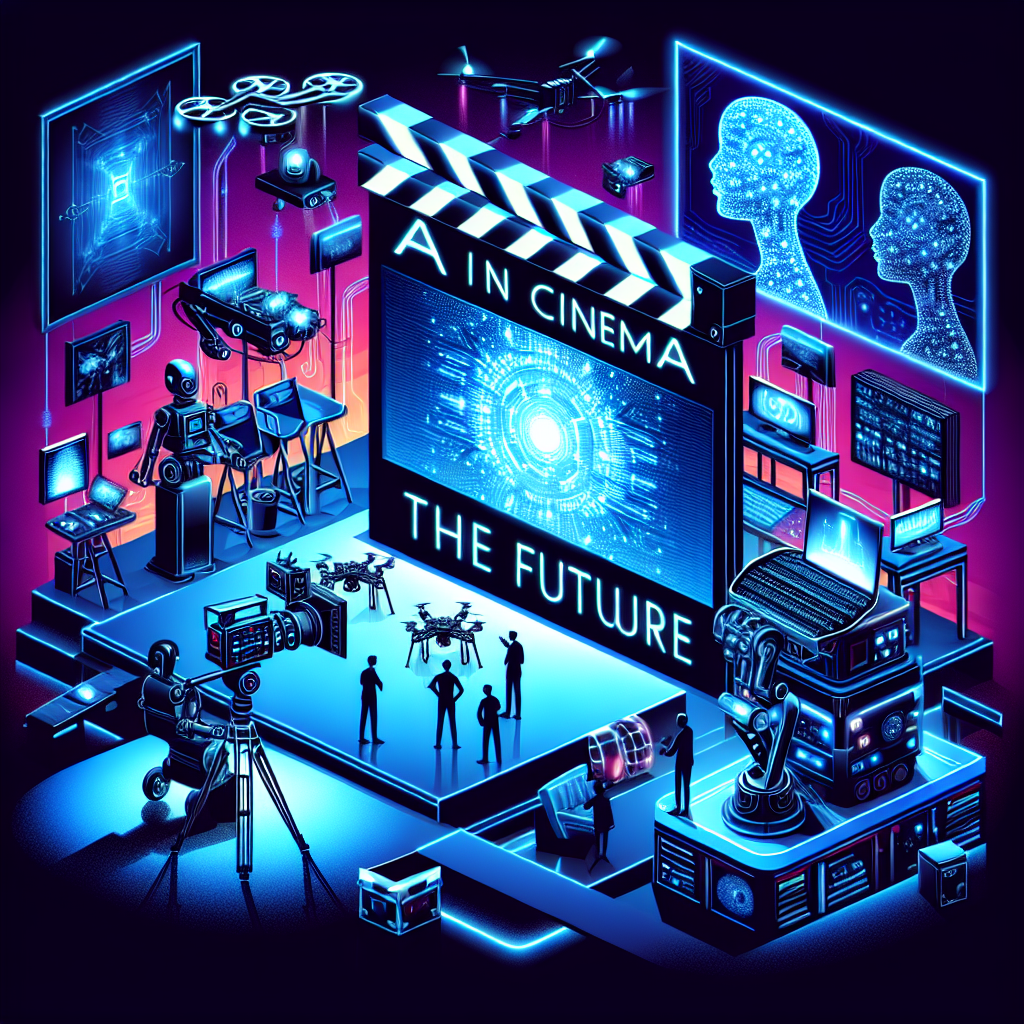AI Revolutionizing Hollywood Film Industry
In 1991, audiences were stunned when they saw the groundbreaking CGI of the liquid-metal T-1000 in *Terminator 2: Judgment Day.* It was a pivotal moment showcasing how technology could redefine storytelling. Fast forward to today, artificial intelligence (AI) is pushing the boundaries even further, transforming the Hollywood film industry in ways that were once thought impossible. From scriptwriting to visual effects and even digital actors, AI is revolutionizing how films are made, distributed, and experienced.
The Role of AI in Scriptwriting and Pre-Production
AI-driven tools are changing the way scripts are crafted. Today, AI algorithms analyze data from successful films, helping writers generate ideas, structure plots, and even predict audience preferences. Programs like AI dungeon and GPT-powered writing assistants suggest dialogue, character arcs, and potential story developments.
Filmmakers are also using AI to streamline pre-production tasks, such as:
- Automating casting decisions based on data-driven analytics.
- Generating realistic storyboards and visual concepts.
- Predicting film success based on market trends.
By leveraging AI, production teams can save both time and money while optimizing their creative output.
AI in Visual Effects and CGI
Special effects, which once required months of labor-intensive work, are now being accelerated by AI. Machine learning-powered tools create ultra-realistic CGI, de-aging actors, generating lifelike digital characters, and enhancing set designs. AI has been pivotal in films like *The Irishman* (2019), where Robert De Niro and other actors were digitally de-aged without the need for extensive prosthetics.
Additionally, AI is being used in post-production to automate color grading, improve editing speed, and enhance scenes with hyper-realistic effects. This not only reduces manual workload but also allows filmmakers to achieve results that were once unimaginable.
AI-Generated Actors: The Future of Casting?
With AI advancements, some studios are experimenting with entirely digital actors. Virtual influencers and AI-generated human personas are now being cast in short films, advertisements, and even feature films. This raises intriguing possibilities—and ethical concerns—about the role of human actors in the future of Hollywood.
Some key benefits of AI actors include:
- No scheduling conflicts or contract disputes.
- Limitless creative flexibility.
- Cost-efficient productions without expensive reshoots.
However, this also prompts questions about authenticity and the role of real human emotion in cinema.
The Impact of AI on Film Marketing and Distribution
AI is not only revolutionizing the production process but also transforming marketing and distribution. AI-driven data analytics help studios tailor marketing campaigns by analyzing audience preferences, online behaviors, and social media trends. Streaming platforms like Netflix and Hulu leverage AI recommendation algorithms to personalize content for viewers, ensuring higher engagement and retention.
Some AI-powered marketing strategies include:
- AI-generated trailers optimized for different demographics.
- Predictive analytics for box-office success.
- Personalized user experiences on streaming platforms.
This fusion of AI and audience data is making Hollywood more efficient in reaching the right viewers with the right content.
The Ethical Debate: How Far Should AI Go?
While AI is bringing undeniable advantages to the film industry, there are ethical concerns regarding job displacement, deepfake technology, and potential misuse. As more tasks become automated, traditional film crew jobs such as editors, designers, and even actors could face an uncertain future.
Moreover, the widespread use of AI-generated content raises concerns about authenticity in storytelling. Will audiences accept films populated by AI-generated characters, or do human performances still hold an irreplaceable value?
Final Thoughts
The AI revolution in the Hollywood film industry is already underway, altering the way movies are conceived, produced, and consumed. From AI-assisted scripts to fully digital actors, technology is reshaping every facet of filmmaking. As Hollywood navigates this new frontier, the question remains: will AI enhance human creativity, or will it replace it?
For a deeper look into AI’s impact on the creative industries, check out this [detailed analysis on AI in entertainment](https://www.forbes.com/sites/forbestechcouncil/2023/08/15/how-ai-is-changing-the-entertainment-industry/) from Forbes.

